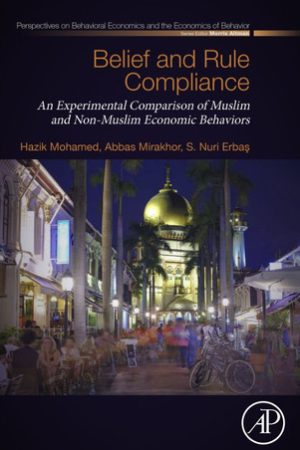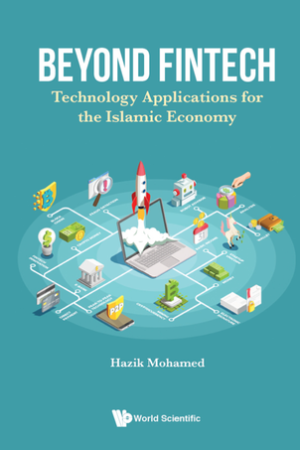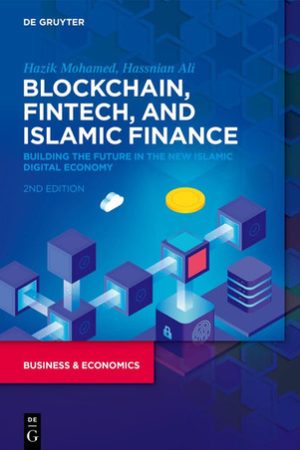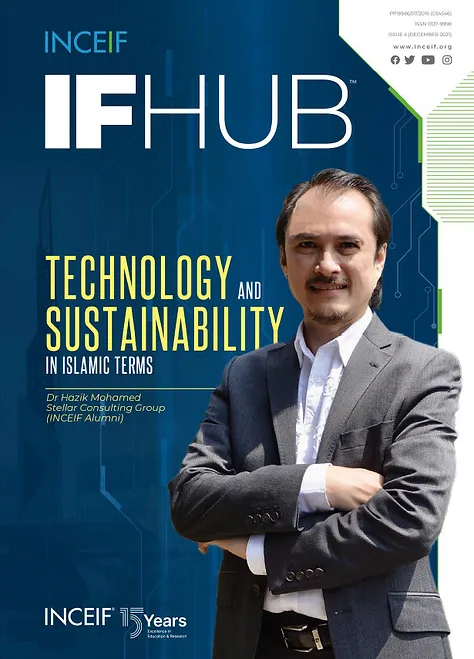What is this course about?
- It is NOT just another "finance" course.
- It is NOT a course about making money - though it will help you understand the concept of money from an Islamic perspective, all that is halal and haram.
- It is NOT a course that is theory 100% - though the instructor will explain on a deep and practical level why there are different rulings for different financial products.
- This is NOT the last Islamic Finance course you will ever need - though it will give you a solid foundation to take on other courses on Islamic finance overseas.




The Core Foundation to Islamic Finance is an exciting journey of learning why Islamic finance makes sense
A Professional, tertiary level Islamic finance course, designed and taught by Dr Hazik Mohamed, a business consultant and an expert in Islamic finance who has authored three books :
- 1. Blockchain, Fintech, and Islamic Finance: Building the Future in the New Islamic Digital Economy
- 2. Beyond Fintech: Technology Applications For The Islamic Economy
- 3. Belief and Rule Compliance: An Experimental Comparison of Muslim and Non-Muslim Economic Behavior
What People Say:
Realised why we keep having recessions? You're not alone..
We're about to enter into another recession just after Covid-19. Why? There's just too many issue with the conventional financial system

- The question is...does Islam have the solution for it?
- Are you going to step up, get proactive, and learn about Islamic finance?
- Are you going to just react to every new change that happens around you?
- Are you going to ignore the opportunity to learn about a field that could cure the global economy?
What will you learn?
01
Introduction to Islamic Finance
Basic Shariah principles and practices that make up the foundations of Islamic Finance, and making a case for Islamic Finance in the modern financial system.
02
Types of Islamic Finance Contracts
Applications on the different contracts used by Islamic financial institutions and why they are integral to making a product Shariah compliant.
03
Islamic Banking Operations & instruments
The comprehensive suite of trade and commercial Instruments Islamic banks use to serve their retail and institutional clients. Internet banking is just the beginning.
04
Islamic Capital Market
Heard of sukuks, REITs and ETFs? These is just the tip of the iceberg when it comes to the different "permutations" of debt and equity markets.
05
Risk Management and Regulatory Framework
Explore the world of risk management. Not just Islamic insurance but also the Islamic version of derivative instruments. Sounds exotic?
06
Globalisation & challenges in Islamic Finance
The need for corporate governance and other developments needed to ensure the smooth running of this industry.
For AAOIFI Members

Who is your trainer?
Who is your trainer? Hazik is a multi-skilled professional with substantial business management and varied experience in strategic, problem-solving, project management and operational leadership roles. He possesses a BSc in Engineering, an MSc in Finance, and a PhD in Islamic Finance, focusing on Behavioural Economics using Game Theory. He has since developed his competencies for various applications, including policy development, corporate product/service innovation and business advisory for digital applications.
Hazik has over 24 years of working experience, where he has worked on an array of international consulting projects. His past clients include ASEAN Secretariat, national financial offices, and the UNCDF. These project-based consultancy include business model reviews, capacity readiness assessments, innovative solution conceptualizations, greening MSMEs, sustainability road-mapping and market-based representation.
As a sought-after trainer, he has designed and delivered various professional certification programs (such as “Islamic FinTech” endorsed by MDEC and USM; supported by AAOIFI CPD hours) at iFINTELL Business Intelligence in Malaysia, and “Fintech and Digital Transformation in Banking and Finance” supported by Institute of Banking and Finance (IBF) for Sapience Consulting in Singapore.

As an adjunct faculty, he has delivered the core economics and finance courses for Putra Business School in its MBA program: “Business Economics”, “Corporate Finance”, “International Finance”, “Security Analysis and Portfolio Theory”. He crafted the university’s elective “Digital Transformation” and “FinTech” courses for its MBA and MSc programs.
At the Singapore University of Social Sciences (SUSS), he taught: “Managerial Economics”, “Economic Ideas and Models for Business” and “Essentials of Financial Management” for their undergraduate program. As an author, Hazik has published with three different international publishers: “Belief and Rule Compliance” (Academic Press, an imprint of Elsevier, 2018) on behavioural economics; “Blockchain, Fintech and Islamic Finance” (De|Press, an imprint of De Gruyter, 2019) and “Beyond Fintech” (World Scientific, 2021) on the trajectory of frontier technologies used in finance and other sectors.
Hazik regularly contributes thought leadership articles to industry-specific magazines like The EDGE Markets and SME Asia Magazine, as well as reputable journals worldwide.
Want to hear from Dr Hazik first?
Questions we asked:
- What does the Islamic economy mean?
- What is Islamic fintech?
- How to grasp the rapid development of fintech?
- Developments of blockchain in Islamic finance?
- Developments of blockchain in Islamic finance?
- An Islamic version of crypto?
- An Islamic version of crypto?
- Do we need everything to be Islamic instead of just "Muslim friendly"?
01
You heard about Islamic Finance, Islamic Banking and Islamic economics but have yet to find a course in Singapore to teach you just that.
02
You are working in the financial industry but feel that it's time you do something to understand the Islamic perspective of finance
03
You have learnt about Shariah or other Islamic sciences and have always wanted to learn how it is applied in finance
04
You already learnt Islamic finance but want a refresher or a deeper understanding of Islamic finance from a unique approach.
After this course, you'll be able to answer the following questions:
- How is Islamic Finance different from conventional finance?
- What is the economic reason for the prohibition of riba?
- How can Islamic Finance prevent financial crises?
- What can be attributed to the cyclical nature of the economy?
- How can Islamic Finance reduce inequality and financial exclusion?
- What is the unique characteristics of Islamic banking instruments?
The first run was a blast!
Service given by IFSG personnel
Course content
Overall course rating
Details?
When
On-Demand through video recording
Venue
E-Learning
Duration
8 hours
Delivery
Instructor led seminar
Level
Professional/Tertiary
Price
S$400/pax


